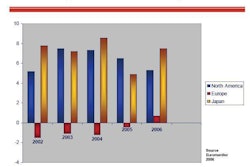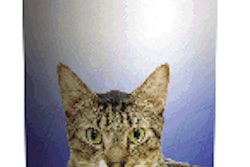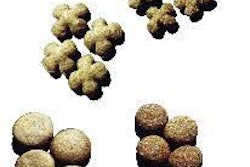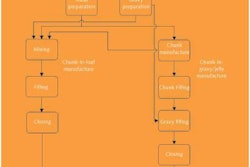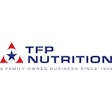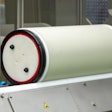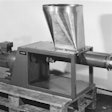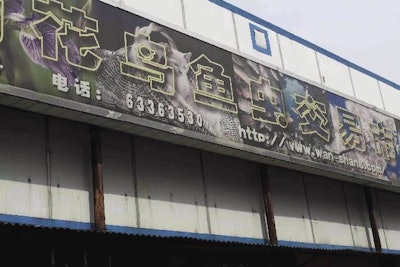
In early May the Chinese government arrested two people involved in the melamine and cyanuric acid contamination of petfood ingredients exported to the US and stepped up enforcement activities. In addition, the Chinese government worked with experts from the US Food and Drug Administration (FDA) to help resolve the problem.
China's government authorities detained the managers of Xuzhou Anying Biologic Technology Development Co. Ltd. and Binzhou Futian Biology Technology Co. Ltd. Both exporters, these companies were identified by US and Chinese authorities as the culprits behind the contamination.
"The two companies involved in the contaminated petfood event have been closed," announced the General Administration of Quality Supervision, Inspection and Quarantine of the People's Republic of China (AQSIQ), China's equivalent of the FDA, on May 14.
However, AQSIQ has not yet made public the identities of the managers involved, the charges they are facing or any details of the investigation. A paper trail linked the two companies to exports of the contaminated ingredients to the US in late summer and fall of 2006.
The ingredients, originally identified as wheat gluten and rice protein, both turned out to be wheat flour laced with melamine, regulators said. According to AQSIQ, the products were mislabeled to avoid export inspection.
Cheating consumers to reduce costs
Food safety problems are a serious issue in China. In 2004, for example, dozens of babies died and hundreds became ill after being fed a baby formula with no nutritional value.
"In China, it is known that producers sometimes cheat consumers in order to reduce costs," said Sun Shuxia, the director of the China Health Care Association.
According to some reports, melamine has been in widespread use in China to artificially inflate protein readings in animal feed. Normally, melamine is used in the production of products like cookware, glues, resins and fertilizers.
"The melamine in dishware on the market is totally safe," said Hu Xiaosong, a professor at China Agricultural University. "However, melamine is a chemical material and is not on the list of legal food additives here."
In early May Chinese regulators launched a nationwide inspection of wheat gluten producers in the country. By May 8 AQSIQ reported that investigators collected 399 samples from 173 export enterprises around the country, including the provinces of Beijing, Tianjin, Jilin, Shandong, Hebei, Zhejiang, Jiangsu, Henan, Hubei, Fujian and Ningxi. In addition, inspectors sampled 57 batches of plant protein, including corn, wheat and rice protein. "The inspection and quarantine agencies have not found any products with melamine contamination," AQSIQ announced.
Authorities have also expanded the investigation to include spot checks of human food, including milk powder, liquid milk, noodles, sausages, bread and other products, and found no evidence of melamine, the agency reported.
In addition, Shanghai city food and drug authorities said on May 10 that the city had established a new testing system for food safety. "The system can tell the safety of most food products within 30 minutes," said Li Jie, deputy director of the Shanghai Food and Drug Supervision Institute, according to the state-owned Xinhua newswire.
No contamination in Chinese chain
So far, there has been no evidence of melamine contamination of the Chinese petfood supply chain. "I have not heard of the use of melamine as a petfood additive here," said Guo Weizhong, dean of the Shanghai Shenpu Pet Hospital. "And there have been no recent cases related to melamine contamination in our hospital." Shenpu, established in 1993, is the city's largest pet hospital.
Guo said his hospital has seen cases of petfood poisoning in the past. However, it is difficult to determine the exact cause of death, he said, because the hospital does not do postmortems on animals.
As a precaution, local petfood distributors have taken steps to ensure the safety of their products. Nestlé Group, which sells its Nestlé Purina PetCare products in China, goes beyond the local safety requirements, said Sim Joohua, head of Nestlé Purina PetCare for the Greater China Region.
"In addition to the China standards, we follow our own internal, extremely stringent standards to ensure petfood safety," he said. "And we have never procured ingredients from the suppliers incriminated in the melamine case." Nestlé manufactures its petfood in a new factory in Tianjin and also imports some petfood into China from a factory in Australia, according to Sim.
Updating food safety laws
China will soon update its food safety laws to bring them closer in line with international standards.
"In China, food regulations and standards have been developed in an ad hoc way without the benefit of a basic food law," said Joanna Brent, team leader for World Health Organization in China. "The institutional arrangements around food safety have made coordination among nine responsible government authorities problematic; another eight agencies have secondary food safety roles. Coordination and communication between these authorities needs to be improved, or a single agency nominated to be responsible for all food safety matters."
According to Brent, an estimated 300 million people are affected by foodborne diseases in China every year.
An official from the Legislative Affairs Office of the State Council said his department would finish drafting the amendments to the food safety law soon, Xinhua reported. "The State Council of China promulgated the 2007 National Food Safety special anti-crime program," said Jiang Yu, spokesperson of the Foreign Ministry, in a press release. "The objective is to further strengthen the supervision and management of food production and processing."
"The situation of food supervision and inspection in China is improving, but we still have some problems," said Sun Shuxia, director of the China Health Care Association. "Under the constraints, which include the shortage of equipment and the size of the country, we have not been able to perform the supervision work as well as we expected."
She added that the Chinese government also has a tendency to be cautious and evasive when confronting food safety problems. "Information needs to be more available to the public," she said.

